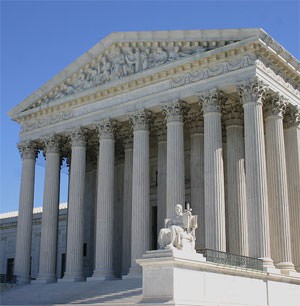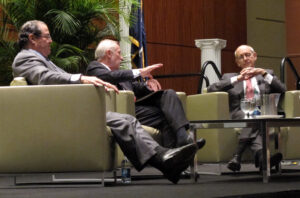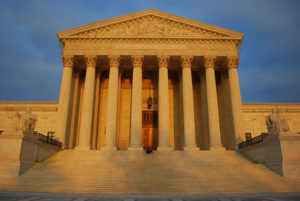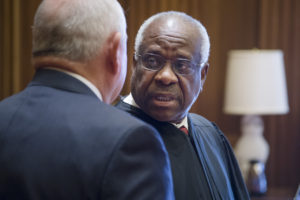Renewal of Voting Rights Act a ‘Perpetuation of Racial Entitlement,’ Scalia Says
Certain Supreme Court justices were critical of the Voting Rights Act as they listened to oral arguments Wednesday in a case challening a key portion of the civil rights legislation.
Certain Supreme Court justices were critical of the Voting Rights Act as they listened to oral arguments Wednesday in a case challenging a key portion of the civil rights legislation, signaling possible trouble for the provision. But perhaps none of the justices from the court’s majority conservative faction was as disparaging of the law as Antonin Scalia, who referred to its unanimous renewal in 2006 as a “perpetuation of racial entitlement.”
According to Think Progress, Scalia’s remark was met by “audible gasps” in the lawyer’s lounge, where members of the Supreme Court bar can listen to oral arguments.
The comment also led to a heated confrontation with fellow Justice Sonia Sotomayor.
MSNBC:
Scalia made the comments while discussing the unanimous re-authorization of the act passed by the Senate in 2006. According to Scalia, that vote indicates political fear among lawmakers more than any actual need for the protections provided by the law. “I don’t think there is anything to gain by any senator by voting against this Act,” he said. “This is not the kind of question you can leave to Congress. They’re going to lose votes if they vote against the Voting Rights Act. Even the name is wonderful.”
Justice Sonia Sotomayor challenged Scalia’s comments, asking “Do you think Section 5 was voted for because it was a racial entitlement?” She also asked “Do you think racial discrimination has ended?”
The comments came during a hearing in which the conservative and likely swing members of the court appeared ready to overturn the a key provision of the law because it was too “backward looking.”
— Posted by Tracy Bloom.
Your support matters…Independent journalism is under threat and overshadowed by heavily funded mainstream media.
You can help level the playing field. Become a member.
Your tax-deductible contribution keeps us digging beneath the headlines to give you thought-provoking, investigative reporting and analysis that unearths what's really happening- without compromise.
Give today to support our courageous, independent journalists.





You need to be a supporter to comment.
There are currently no responses to this article.
Be the first to respond.